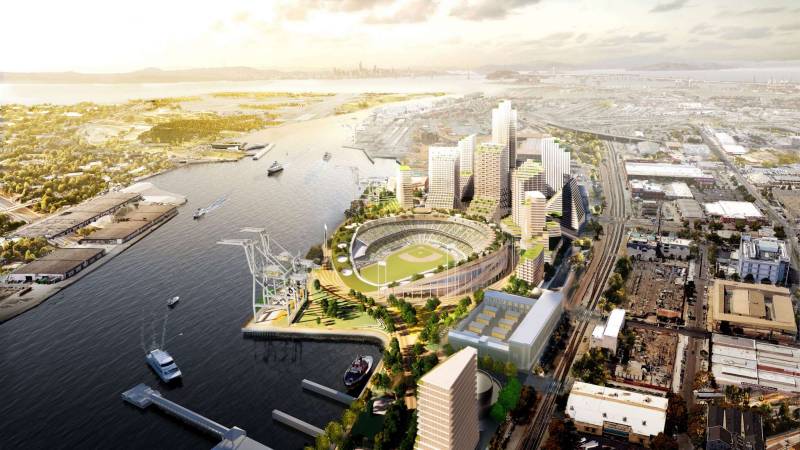"What the City Council approved yesterday is not just one of the most iconic ballparks that the world will ever see, but an entire, beautiful community-serving ballpark district," Schaaf said. "A new neighborhood, with amazing union jobs, public parks, affordable housing and safety improvements."
She also promised the plan would create significant tax revenue, ensuring the project's financial viability, unlike past sports deals gone bad; Oakland is still paying off the bonds that financed the remodeling of the Coliseum for the Raiders' return in 1995.
"We are doing everything within our power to move this process along in a way that is not just great for the A’s and our A’s fans and the community, but also responsible to the taxpayers," she said. "We are never going to do a Raiders deal again."
The team’s lease at the aging Oakland Coliseum in East Oakland runs through 2024. The league has said rebuilding at the current location is not a viable option.
Several Coliseum employees were among the throngs of residents who called in during the public comment period at Tuesday's meeting.
"Those jobs are very important to us. We got a lot of seniors that work here like myself. And we need that job to make ends meet," a man named Tony, who works at the current stadium, told councilmembers. "You're talking about over 600 jobs that are lost. People are getting displaced again. So we are really asking the council to please vote yes on this issue so we can keep our jobs and continue to live in Oakland."
Other callers, though, like Emily Wheeler, a member of the Oakland Tenants Union, said the team was all "about greed," and urged the city not to capitulate.
"The A’s are like an abusive boyfriend and you need to stand up to them," Wheeler said.

